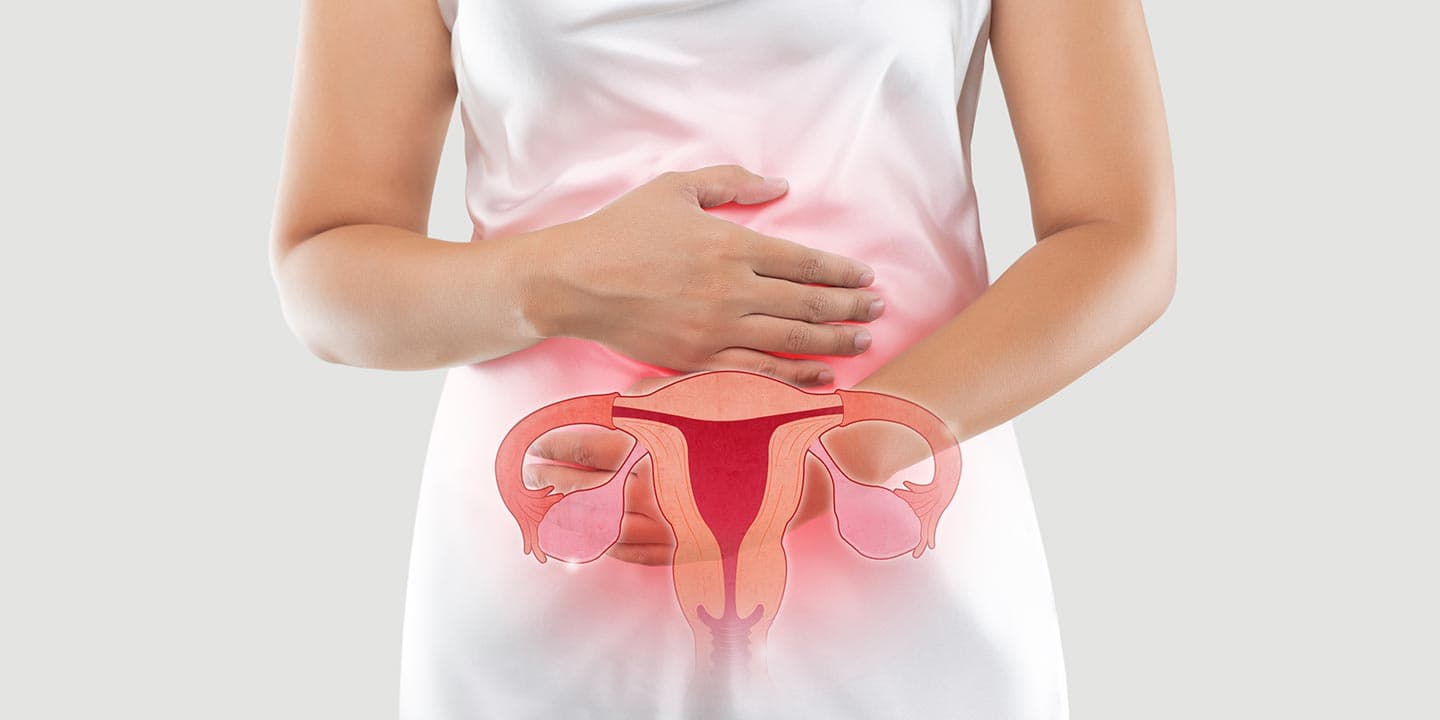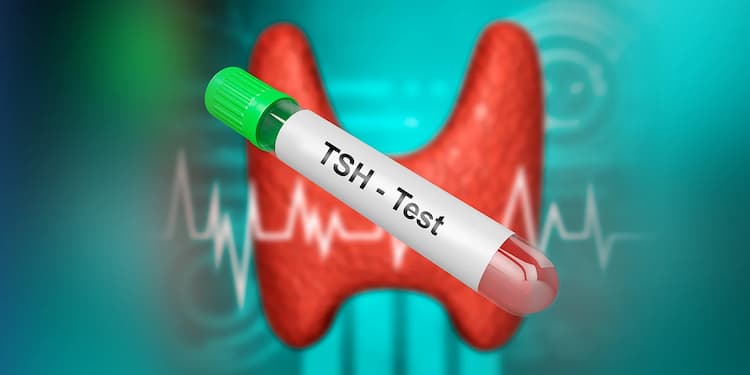Ongoing pain or cramps in your belly or back could be a sign of ovarian cancer: Ovarian Cancer Awareness month

Medically Reviewed By
Dr. Ragiinii Sharma
Written By Prekshi Garg
on Sep 18, 2022
Last Edit Made By Prekshi Garg
on Mar 17, 2024

Ovarian cancer is one of the most common types of cancer in females. Although it is not as common as breast cancer, it is still persistent in notable majority. It is the 7th most common cancer around the globe and is the leading cancer that is responsible for death in females, according to the data by the Indian Council of Medical Research. In 2019, around 3.34% of deaths in India were due to ovarian cancer. According to research, only 45% of the females suffering from ovarian cancer will be able to survive for more than 5 years. Realising the severity of ovarian cancer and it's widespread, September is recognized as Ovarian Cancer awareness month. It is important to spread awareness about ovarian cancer because of its vague symptoms which are not easily distinguishable from other diseases and agrressive onset.
Ovarian cancer is fatal and life-threatening. It can spread to your nearby organs as well, making its treatment very difficult. For the effective treatment of ovarian cancer it is important that it gets diagnosed at an early stage. Since ovarian cancer does not have any unique symptoms and all its symptoms are common in many diseases, its diagnosis at the right time is very difficult. Therefore if you are at risk of ovarian cancer, you must get yourself checked at regular intervals. The diagnosis of ovarian cancer at the right time is essential for its effective treatment.
In this article, let us talk about what ovarian cancer is and what are its early signs and symptoms that can help in the diagnosis of ovarian cancer at the right time so that the cancer can be treated effectively.
What is ovarian cancer?
Ovarian cancer develops in the ovaries of the female, the organ which is responsible for the production of eggs and regulation of hormones like progesterone and oestrogen. The main challenge in ovarian cancer treatment is its early-stage detection. Ovarian cancer generally gets detected at a later stage when it has spread to the abdomen and pelvic region. Only 15% of cases of ovarian cancer are diagnosed at an early stage. Thus, late-stage detection of ovarian cancer is difficult to treat, making the condition fatal. Successful treatment of ovarian cancer is possible when cancer is confined to your ovaries alone. Ovarian cancer can develop in different cells. Therefore, depending on the type of cell where ovarian cancer has developed, it can be classified into three types:
- If the tumour develops in the thin tissue layer that surrounds the outside of the ovaries, it is known as the epithelial tumour. About 90% of the ovarian cancers are epithelial tumours.
- If the tumour develops in the tissue that contains the hormone producing cells, it is known as the stromal tumours. These tumours are comparatively more frequently diagnosed at an early stage as compared to the other two types of ovarian cancer. Around 7% of ovarian cancers are stromal tumours.
- If the tumour develops in the cells that produce eggs, it is known as germ cell tumours. This type of ovarian cancer is rare and is generally diagnosed in younger females.
Is ongoing pain or cramps in the belly or back, a symptom of ovarian cancer?
Pain or cramps in the back or belly is normal for women to experience, especially during mensturation. Women often ignore such symptoms thinking that they are due to their hormonal changes. But are hormones the only cause of back and belly pain? These cramp-like symptoms can be a sign of ovarian cancer as well. Ovarian cancer is the third most common type of gynaecological cancer after breast and cervical cancer. Thus, it is important to take these symptoms seriously. After 35 years of age, the risk of ovarian cancer starts increasing in females. According to the Age-Specific Incidence Rate (ASIR), the risk of ovarian cancer is at its peak in females between 55 to 64 years of age. If you experience the symptoms of ovarian cancer, make sure that you take swift action for its treatment. The most common symptoms of ovarian cancer experienced by females include:
- Pressure or pain in the pelvic region
- Bloating
- Gas
- Cramps in the stomach or back
- Vaginal discharge
- Feeling full quickly after eating
- Frequent urination
- Abnormal bleeding
- Upset stomach
- Fatigue
- Constipation
- Pain during sex
- Menstrual irregularities
What are the risk factors for ovarian cancer?
Since the early detection and treatment of ovarian cancer is challenging, it is important to recognize the risk factors to make screening for cancer possible. If you are at a risk of developing ovarian cancer, you must get yourself tested at regular intervals, so that the cancer can be diagnosed at the initial stage itself and suitable treatment can be given to treat it and prevent its spread to the nearby organs as well. The group of people which are at a higher risk of developing ovarian cancer are:
- If you have a family history of ovarian cancer, that is, someone in your family had ovarian cancer in the past. The mutations in the BRCA1 and BRCA2 gene are linked to both breast cancer and ovarian cancer.
- The risk of ovarian cancer is greater in females who haven’t been pregnant for a single time in their life.
- Females who have experienced early puberty and late menopause are also at a greater risk of developing ovarian cancer.
- Females with a past history of breast cancer
What are the early signs of ovarian cancer?
Since ovarian cancer is a common and fatal condition, you must know the early signs and symptoms that can help diagnose ovarian cancer. Recognizing the early signs of ovarian cancer is very important to treat the cancer at the early stage and prevent its spread to other organs. Following are the main symptoms of ovarian cancer that you may easily recognize.
Bloating
Bloating refers to an uncomfortable feeling of stomach fullness. Bloating is very common for every female to feel. Every girl experiences it every month due to the menstrual cycle, but if your bloating lasts for more than three weeks then you must consult a doctor. Prolonged feeling of bloatedness is not normal and can be a symptom of ovarian cancer. It is the most common and earliest sign of ovarian cancer. If bloating is accompanied by swelling in your stomach, then it is a more severe and direct symptom of ovarian cancer.
Constipation
Gastrointestinal issues are a set of symptoms that are linked to all health conditions ranging from stress, anxiety, irritable bowel syndrome to ovarian cancer as well. Constipation is a common gastrointestinal symptom that may indicate development of ovarian cancer. If you have prolonged constipation which is not getting treated by any means, it can be a symptom of ovarian cancer. Thus, consult your doctor in case of any such symptom.
Prolonged pain
As discussed earlier, pain in the abdomen, lower back, or pelvic region can be a sign of ovarian cancer. If you have pain that lasts for more than 3 weeks, you must consult your doctor. The question here arises that prolonged pain can be a symptom of many diseases, then how to recognize whether or not it is for ovarian cancer? If you improve with a reduction in stress levels, the pain can be a stress related symptom. If any dietary modifications help improve pain, then it can be a symptom related to any gastrointestinal issues. However, if you have a new pain which is consistent and not due to any other factor, then it can be a symptom of ovarian cancer. If you have such symptoms and you are not sure about its cause, it is best to take doctor’s advice. There are various tests which can help determine the exact cause of your pain like physical examination of your gastrointestinal tract, colonoscopy, endoscopy, pelvic exam, ultrasound, MRI, CT scan, and bloodwork.
Change in bladder function
Generally, bladder related issues like frequent urge to urinate or pain while urinating are thought to be because of the urinary tract infection, but sometimes, it can also be a symptom of some serious health issues like ovarian cancer. The most common urinary tract symptoms associated with ovarian cancer are frequent urge to urinate, pain while urinating, feeling pressure while urinating, and a sudden, immediate urge to urinate. However, most often urinary symptoms are associated with infection, but if these symptoms last for several days, you must get consultation from your doctor.
Difficulty eating
Another very common symptom of ovarian cancer is loss of appetite or feeling full after eating very less food. Some people with ovarian cancer even find finishing small amounts of food difficult. If, in case, you have recently started observing these symptoms in yourself, you must consult your doctor.
Takeaway
Ovarian cancer is a leading cause of death in females, not only in India, but around the globe as well. This makes it essentially important to spread awareness against this condition. When it comes to female cancers, we generally talk about breast cancer, but ovarian cancer is also a condition that needs discussion and awareness. Thus, September is the month of spreading awareness about ovarian cancer. The diagnosis of ovarian cancer at an early stage is challenging. It is usually diagnosed as an advanced algae when it has spread to the nearby organs making its treatment difficult. Therefore, it is essential that ovarian cancer is diagnosed at an early stage so that it is effectively treated. Now that you know the symptoms of ovarian cancer make sure that you get yourself checked if you notice these symptoms in yourself or your loved ones.
Frequently Asked Questions (FAQs)
1. Does stomach pain due to ovarian cancer come and go?
No, the stomach pain caused due to ovarian cancer is persistent and lasts for several days at a time.
2. Where does your stomach hurt with ovarian cancer?
In case of ovarian cancer, you may experience bloating pain in your abdomen, pelvis, and lower back area.
3. How long can you have ovarian cancer without knowing?
In most cases, it is observed that the symptoms of ovarian cancer take around 5 months to become visible and get diagnosed.
![Gluten Allergy Test - Price, Purpose, & Result [2024]](/myhealth/_next/image/?url=https%3A%2F%2Fmyhealth-redcliffelabs.redcliffelabs.com%2Fmedia%2Fblogcard-images%2FNone%2Fe94dfe46-8720-40de-854a-deedae3143d1.webp&w=750&q=75)


